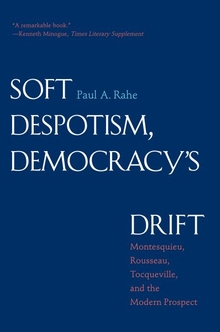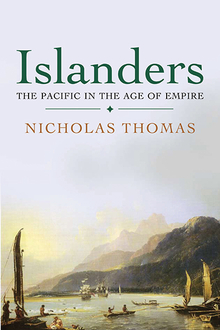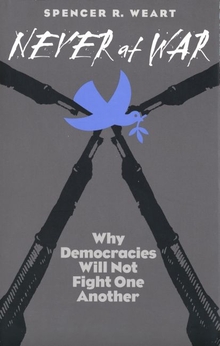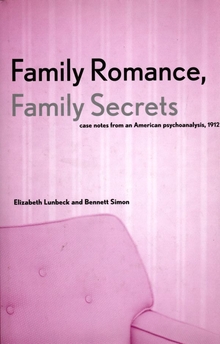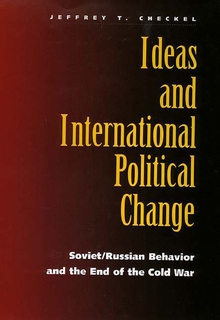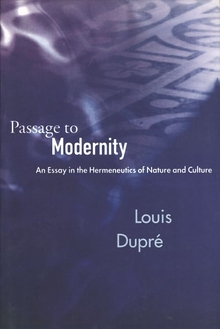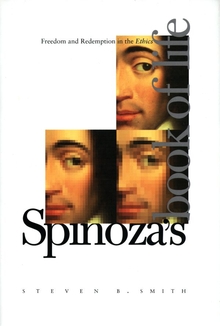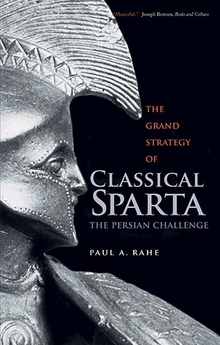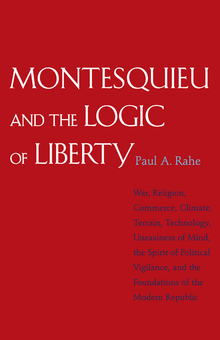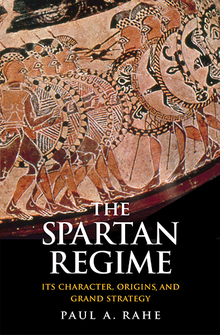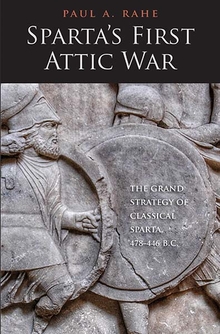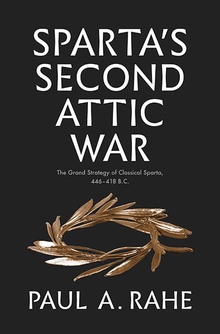Soft Despotism, Democracy's Drift
WARNING
You are viewing an older version of the Yalebooks website. Please visit out new website with more updated information and a better user experience: https://www.yalebooks.com
Montesquieu, Rousseau, Tocqueville, and the Modern Prospect
Paul A. Rahe
An insightful reading of early democratic philosophers and how America and other modern democracies have veered too far from their fundamental roots
In 1989, the Cold War abruptly ended and it seemed as if the world was at last safe for democracy. But a spirit of uneasiness, discontent, and world-weariness soon arose and has persisted in Europe, in America, and elsewhere for two decades. To discern the meaning of this malaise we must investigate the nature of liberal democracy, says the author of this provocative book, and he undertakes to do so through a detailed investigation of the thinking of Montesquieu, Rousseau, and Tocqueville.
Paul A. Rahe argues that these political thinkers anticipated the modern liberal republic's propensity to drift in the direction of “soft despotism”—a condition that arises within a democracy when paternalistic state power expands and gradually undermines the spirit of self-government. Such an eventuality, feared by Tocqueville in the nineteenth century, has now become a reality throughout the European Union, Canada, Australia, New Zealand, and the United States. So Rahe asserts, and he explains what must be done to reverse this unfortunate trend.
“In this impressive work of scholarship, Rahe brings together detailed readings of Montesquieu, Rousseau, and Tocqueville, a command of the historical context in which they wrote, and a sensibility to the literary challenges and requirements of such an understanding.”—Michael Gibbons,
"Acute analysts of emergent commercial republicanism found much to praise, even while foreseeing (and showing how one might avert) its slide into mindless self-absorption. With this expert, engrossing account, Paul Rahe joins that honorable company who resist the further degradation of democratic souls."—Ralph Lerner, The University of Chicago
"This is an exemplary deployment of great past thinkers in an intensely provocative, deliberately controversial meditation on the profound strengths and weaknesses or dangers in our political culture."—Thomas L. Pangle, author of Montesquieu's Philosophy of Liberalism: A Commentary on the Spirit of the Laws
“Paul Rahe is a distinguished and prolific historian in the field of intellectual history who ventures with deliberate intent into political philosophy, judging what he sees.”—Harvey Mansfield, Weekly Standard
“Intelligent [and] well-reasoned.”—Cynthia Grenier, Human Events
Publication Date: April 27, 2010

